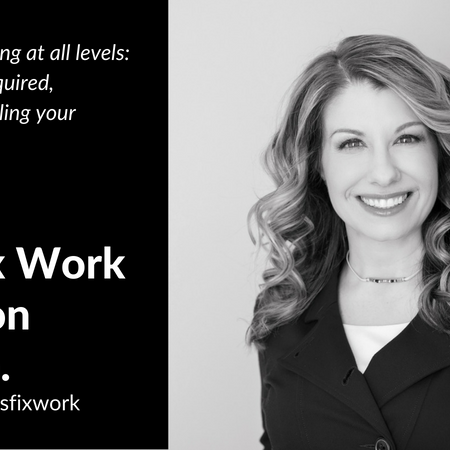
Money management is no joke.
In yesterday’s post, I took you through a rambling financial summary of my mid-twenties. Short version: I made plenty of money but couldn’t rub two nickels together.
Now it’s 2018, I still don’t know how to save any money. I have two things going for me, though. The first is my partner is a saver. The second is I’m blessed with good friends who’ve offered excellent financial advice.
Here is what I’ve learned.
Keep Up with the Right Joneses
If you want to freak someone out, remind them of their limitations and tell them they can go no further. Food. Alcohol. Spending. That’s a blueprint for an emotional disaster.
Growing up, I lived in a 1000 square foot home that had no air-conditioning and one working toilet with eight kids and a few women with irritable bowel disease. It’s now worth over $300K because of an insane real estate market that I don’t understand. Here’s what I do know: I’ll never live below my means again unless something has gone wrong with my life.
If you want to encourage someone to save more money and spend less cash, you need a different approach. I believe you should live slightly below your neighbors.
Right now, I have a mix of neighbors. Some have big TVs, boats and vacation homes. The people across the street from me who live in the woods have a tennis court, and one dude rides around my block on a Segway. But I have other neighbors who live sensibly and drive Ford pickup trucks that are older than Facebook.
Whenever I think about making a big purchase, I think about this guy on the corner named Frank. He cuts his own grass (one of the few in my neighborhood) and washes his own car. He’s always doing yard work, dresses like his wife shops at Sears, and seems happy. He is retired, has hobbies that may or may not involve the NRA, and waves whenever I drive past his house.
Frank isn’t keeping up with anybody and answers to no one. Find your Frank and get to know him a little more. Keep up with that lifestyle minus the NRA.
Don’t Waste Money on Looking Good for Work
As a professional speaker and HR blowhard, I have a weird job. People judge my words, but they also judge my appearance. Literally, people in audiences around the world listen to my keynote speeches and then write things like, “She’s a B+ speaker in a frilly dress.” And I’m like, hey, B+ is good.
My job requires an investment in my appearance. Your job is nothing like mine. You work in restaurants, hospitals, universities, libraries, and corporate headquarters. You work alongside people who look like they haven’t washed their hair since last Tuesday.
Resist the urge to be the prettiest marketing assistant, the person with the best socks/scrubs/handbags, or the best-dressed dude in HR. Spend whatever you want to spend on your appearance because it makes you feel good, but don’t spend money to compete on looks and appearances at work.
And remember this: If you were truly attractive, you wouldn’t need a job. You’d be a model in Miami and living on some Russian oligarch’s yacht. Who wants that life? Oh, wait, everybody? Okay, not me. And not you.
Business Development is a Lie
When I first worked in HR, I always paid for other people’s lunches. I saw it as an act of karma. If I pay for your meal — or buy the coffee at Starbucks — you will have my back and help me throughout my career. Unfortunately, the collective “you” let me down. And I learned that nobody remembers who bought the last round of drinks, they only remember that it wasn’t them.
There are legitimate reasons to buy lunch, but most people buy a round of drinks or pick up dinner because they want to be liked. And ask yourself, “Do I want to build a business or do I want people to like me?”
The fastest way to financial freedom is to stop spending money so that people will like you. That’s not business development. That’s a path towards bankruptcy.
Pay Yourself First
My friend Don MacPherson has been saving 20% of his salary for his entire adult life. We talked about financial planning on Let’s Fix Work, and Don was able to build a tech company and survive the recession because he paid himself first.
Paying yourself first means investing in your future. Paying yourself first means you won’t be poor when you’re old. Paying yourself first means you never have to say yes to a soul-crushing job in a toxic work environment.
Don sold his tech company to Aon and started his life. He has two young daughters and is now on sabbatical. And you can be like Don, too, if you a) live like my neighbor Frank and keep your lifestyle simple and b) stop spending money on work-related appearance expenses and c) find some chump to buy your Starbucks and lunch.
Now let’s be honest. I’m slinging hash on this blog — and not living on the beach — because I can’t follow my financial advice all that well; however, I’ve followed it enough to keep myself out of Corporate America and working as a freelance writer, speaker, consultant, and entrepreneur.
But I know this: to fix work, fix yourself. You’re not a healthy adult who can make good choices about work if you’re not managing your money a little better. Let’s get over our shame and fix our finances as if our lives depend on it. Because, honestly, it does.